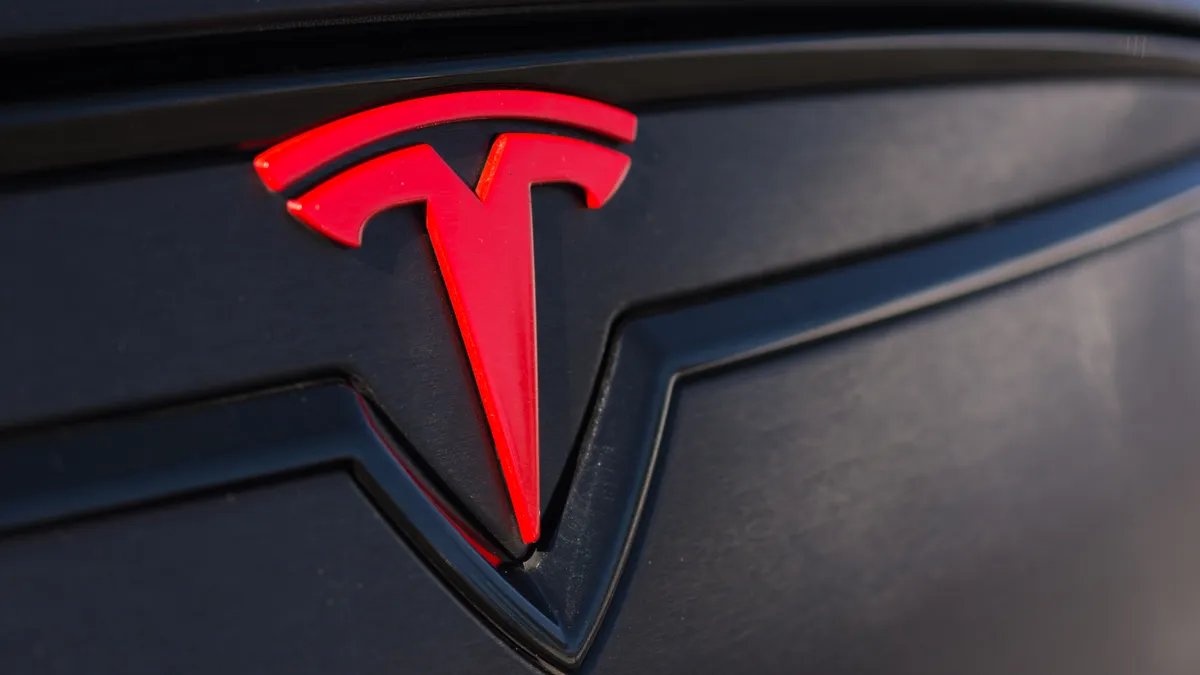Dive Brief:
- Q1 entailed "some of the most difficult supply chain challenges that we have ever experienced in the life of Tesla," the OEM's chief, Elon Musk, said during an earnings call late Monday.
- Zachary Kirkhorn, finance chief, said supply chain "instability" was a key theme for the quarter, noting the semiconductor shortage and port congestion. Tesla and its suppliers kept factories running, though there were some production slowdowns.
- Tesla's struggles to procure enough batteries also persist. The company is working to standup its own production capacity, but that wouldn't replace current battery suppliers, Musk said; it would supplement them. Kirkhorn said the company is looking to double its supplier capacity in 2022, compared to this year.
Dive Insight:
Tesla is working to scale aspects of its business including battery production, vehicle production, and technologies in its solar and wind segments. "We are building factories as quickly as we can," Musk said. But the rest comes down to procurement.
"Insane" supply chain difficulties, as Musk put it, have made scaling an even taller task.
Tesla is aiming for high-volume production of the Model S in Q3, which is when it plans to start delivering the Model X.
"This, again, is contingent on global supply chain issues," Musk said, "which just [involves] a lot of factors outside of our control here."
At one point, Tesla was having trouble with production in China, as coronavirus quarantine restrictions kept engineers from working. Tesla worldwide became dependent on drive units made out of one factory in Nevada.
"I think we are mostly out of that particular problem. But ... those are just two of many challenges," Musk said. "So the team has really done an incredible job of dealing with really severe supply chain shortages."
But the shortages haven't disappeared. The battery supply chain for electric vehicles, for one, is struggling to scale quickly enough to keep up with demand.
Traditionally, cell manufacturing has been tasked with supplying the consumer electronics industry, Celina Mikolajczak, vice president of battery technology at Panasonic Energy of North America, said last month. A laptop has dozens of cells, but an EV requires thousands.
"How do you quickly scale an industry by 100 times?" Mikolajczak said. "You need more raw materials, the skilled talent and machines to extract the raw materials, the factories to process the raw materials into cell components, and then the factories to turn those components into cells."
Vehicle production is also taking hits from the semiconductor shortage. That supply snag has resulted in a lower supply of microcontroller units, which are used in various components throughout vehicles. It's an issue automotive executives have been aware of for about a year.
"The choke is in tier 3 capacity, which is the foundry ... that is making the wafer that goes into these chips," Neal Ganguli, a senior managing director and leader of FTI Consulting's automotive and industrial business transformation said in February. "That is the capacity that's constrained, and you cannot have that capacity overnight."
But even if Tesla's scaling efforts weren't facing procurement headwinds, imported products would likely get bottlenecked before reaching their destinations. Ocean gateways on the U.S. West Coast and beyond have been clogged and will likely remain that way for a few months.
Ports have faced record volumes, as imported TEUs grew by almost 51% YoY across the U.S. in March, according to Panjiva, driven by activity out of Asia. And effects from the Suez Canal blockage, such as tighter capacity and a shortage of containers, are expected to continue into June.













